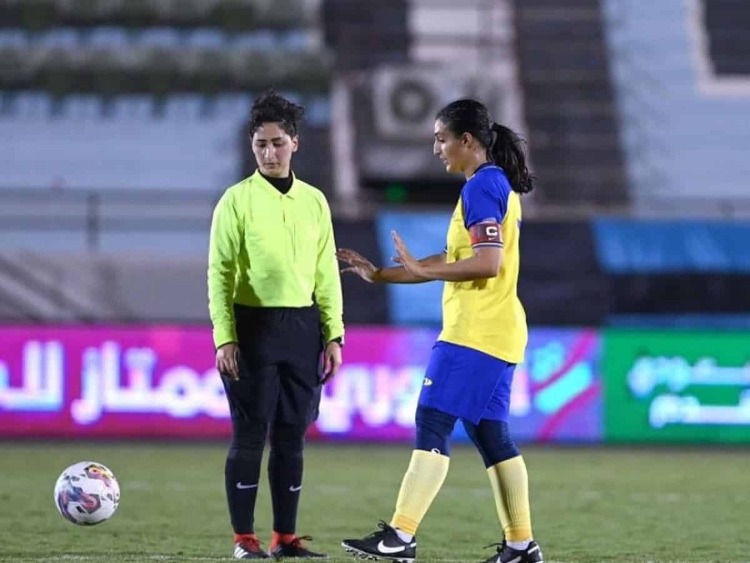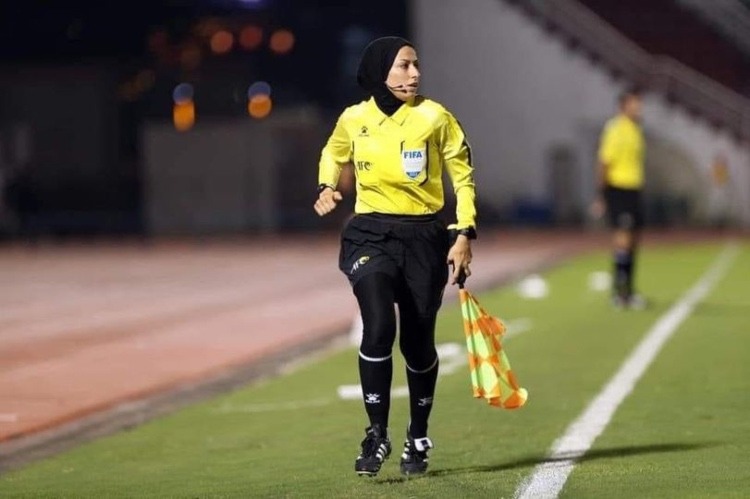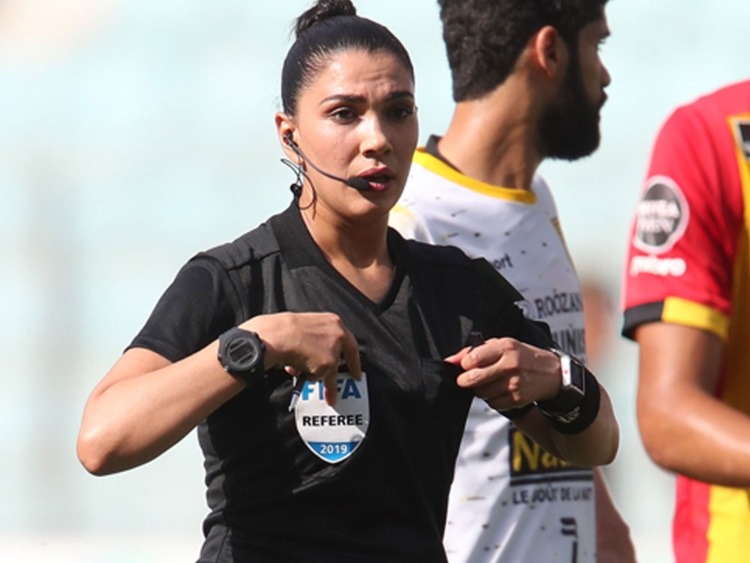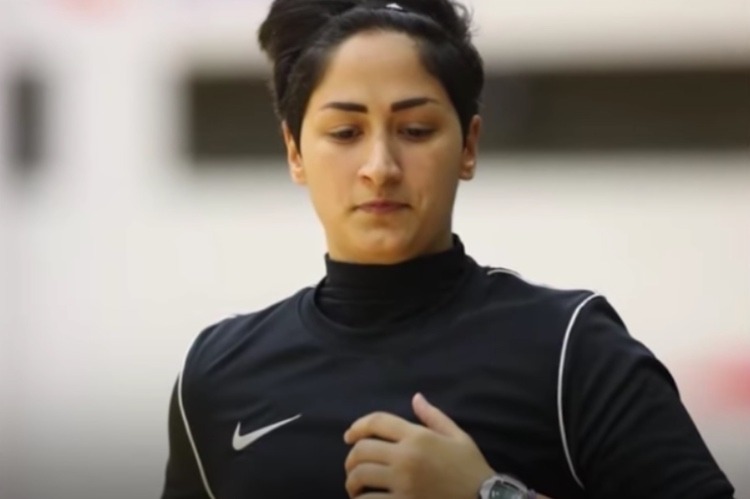Given their ability to potentially influence a game, football referees arguably have one of the toughest jobs in the sports industry. This is a job that is dominated mostly by men as you don’t see often a female referee. Times, however, have changed and the push for inclusiveness has grown louder; resulting in three female referees being chosen to oversee games at the FIFA World Cup Qatar 2022. These officials were Salima Mukansang of Rwanda, Japan’s Yamashita Yoshimi, and Stephanie Frappart of France.
Arab women referees are also getting a chance on the field and receiving international recognition. For instance, on Jan. 6, FIFA named Anoud Al Asmari as the nation’s first female international referee. Less than a year had passed since the national women’s team debuted when this choice was made.

But Al Asmari is not the only one as on Dec. 28, 2022, FIFA chose Palestine’s Heba Saadia to help officiate at this year’s Women’s World Cup matches for the first time. FIFA then offered a statement indicating that Saadia will serve as an assistant referee during the competition, which will be held in Australia and New Zealand from July 20 to Aug. 20, 2023. Assistant referees usually determine which team gets to play off the ball when it moves out of bounds and watch for rule violations during play. Saadia was already an assistant referee at the Women’s Asian Cup, held in India in 2022.

Additionally, back in 2019, Tunisia’s referee Dorsaf Ganoiati made history by refereeing a match in the Tunisian League. She was the first woman to referee a men’s first-division match in Tunisia. Throughout her career, she refereed numerous football matches; however, the match between Spérance Sportive de Tunis and Club Athlétique Bizertin on June 20 marked her second time adjudicating a men’s match at a professional level. She already made her debut back in 2017, when she took on the role of lead referee in a second-division match between Stade Tunisien and Union Monastir.

The aforementioned three referees will open up opportunities for Middle Eastern women to serve as head refs or assistant referees during prestigious events as they are more than qualified to officiate a game. They are under a lot of strain, as their job is definitely not simple. But Arab women have traditionally excelled in a variety of fields, with sports being one of them. It is now time to see more Arab female referees making significant decisions and representing their nation.



